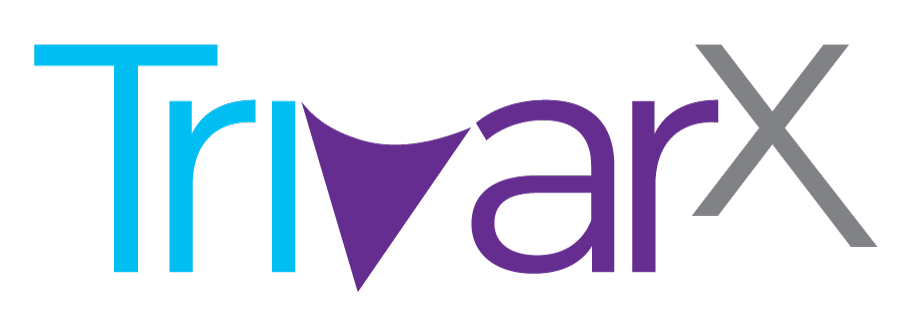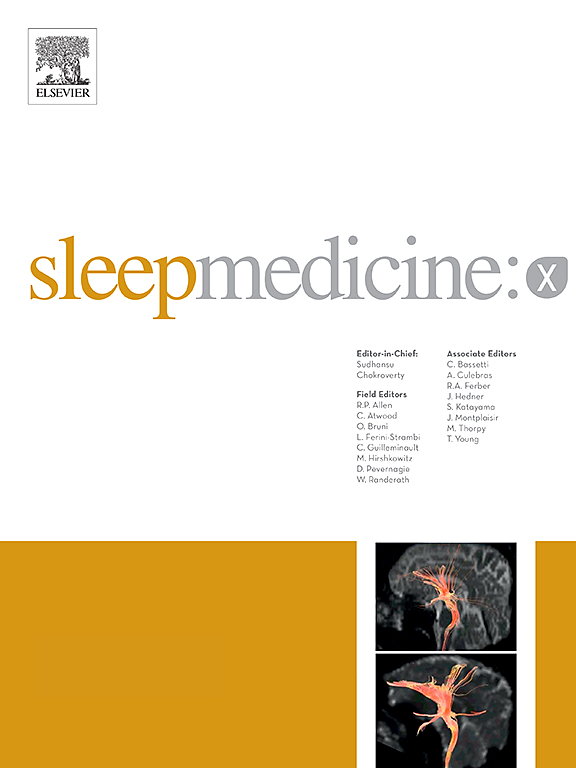
A novel objective digital mental health platform based on machine learning for screening of current major depressive episode in sleep clinics
Massimiliano Grassi, PsyD, Archie Defillo, MD, Silvia Daccò, PsyD, Daniela Caldirola, MD, PhD, Z. Wolfy, Giampaolo Perna, MD, PhD, T. Young
Published Online: February 13, 2024
Sleep Medicine, Volume 115, Supplement 1, 2024, Pages S403-S404, ISSN 1389-9457, https://doi.org/10.1016/j.sleep.2023.11.1085.
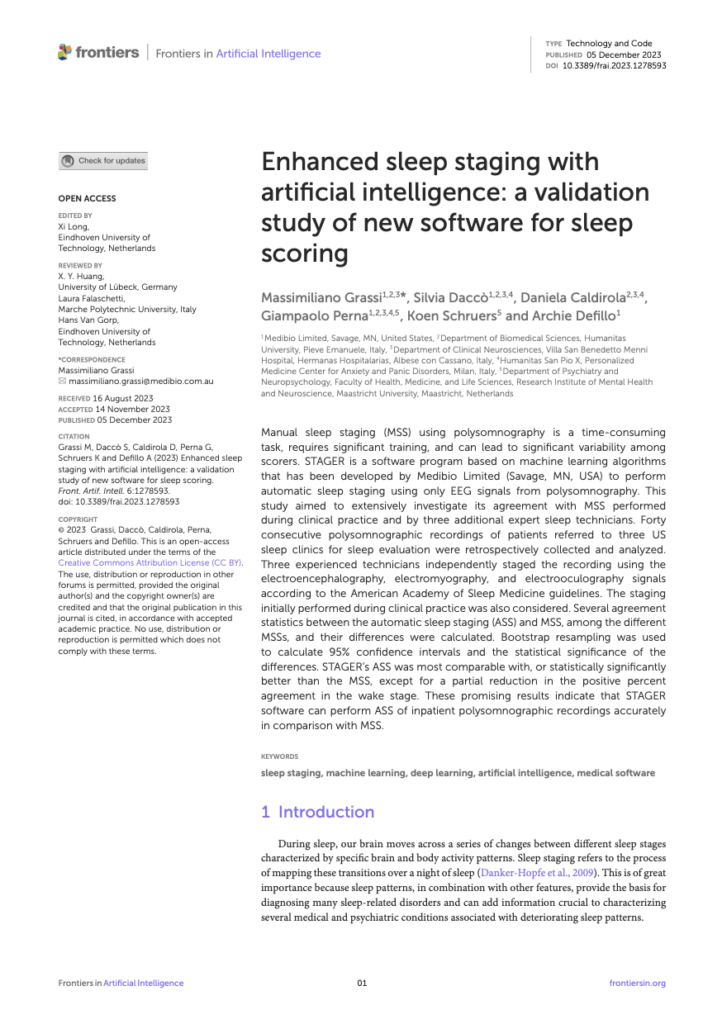
Enhanced sleep staging with artificial intelligence: a validation study of new software for sleep scoring.
Massimiliano Grassi, PsyD, Silvia Daccò, PsyD, Daniela Caldirola, MD, PhD, Giampaolo Perna, MD, PhD, Schruers K, Archie Defillo, MD
Published Online: December 5, 2023
Manual sleep staging (MSS) using polysomnography is a time-consuming task, requires significant training, and can lead to significant variability among scorers. STAGER is a software program based on machine learning algorithms that has been developed by Medibio Limited (Savage, MN, USA) to perform automatic sleep staging using only EEG signals from polysomnography.
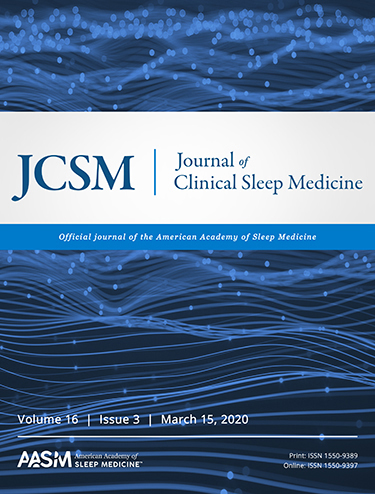
High prevalence of major depression in US sleep clinics: the need for routine depression screening in sleep services
Silvia Daccò, PsyD, Daniela Caldirola, MD, PhD, Massimiliano Grassi, PsyD, Alessandra Alciati, MD, Giampaolo Perna, MD, PhD, Archie Defillo, MD
Published Online: April 1, 2023
Depression screening is not part of routine clinical practice in US sleep clinics. Our study aimed to report the prevalence of depression among individuals referred to US sleep clinics. According to our findings, approximately 21% of patients had depression, with about 4% reporting severe symptoms, 9% had frequent death and/or self-harming thoughts, and 61% were taking antidepressants.

Detecting clinically significant depressive burden in sleep clinics through physiological parameters: Preliminary data as to sleep stages and heart rate
S. Daccò, M. Grassi, D. Caldirola, F. Cuniberti, A. Defillo, G. Perna
Published Online: December, 2022
In this brief report, we present preliminary data from our ongoing clinical study, designed to develop medically graded software device based on a machine learning algorithm used to aid in identifying a clinically significant burden of depressive symptoms (CDB) in individuals referred to sleep clinics (SCs) for polysomnography (PSG) assessment.
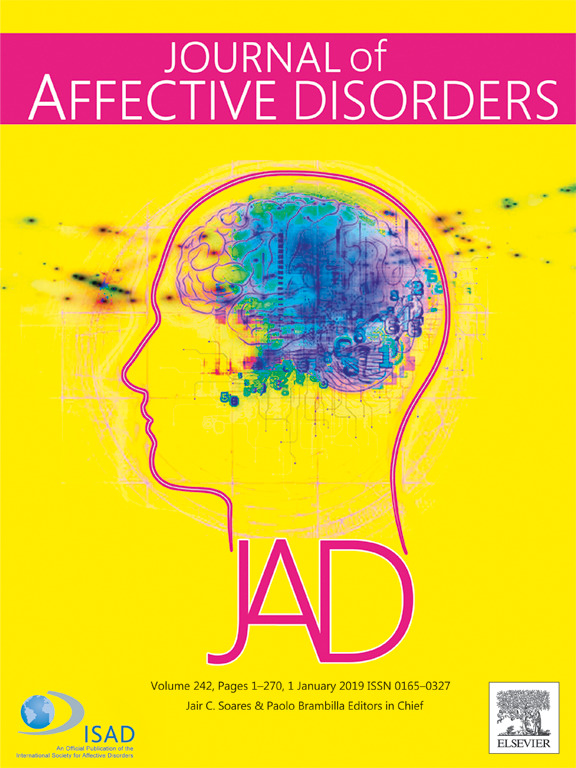
Heart rate variability: Can it serve as a marker of mental health resilience?: Special Section on “Translational and Neuroscience Studies in Affective Disorders
Giampaolo Perna, Alice Riva, Archie Defillo, Erika Sangiorgio, Maria Nobile, Daniela Caldirola.
Published Online: February, 2020
Stress resilience influences mental well-being and vulnerability to psychiatric disorders. Usually, measurement of resilience is based on subjective reports, susceptible to biases. It justifies the need for objective biological/physiological biomarkers of resilience. One promising candidate as biomarker of mental health resilience (MHR) is heart rate variability (HRV). The evidence for its use was reviewed in this study.
